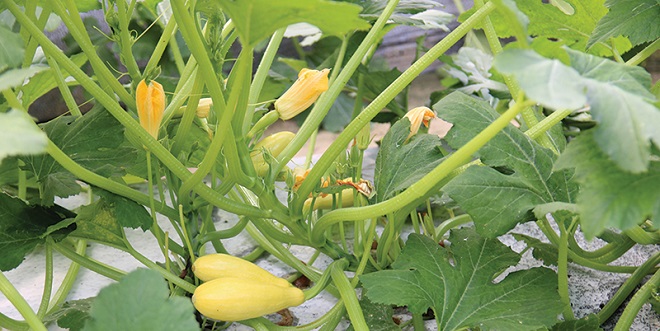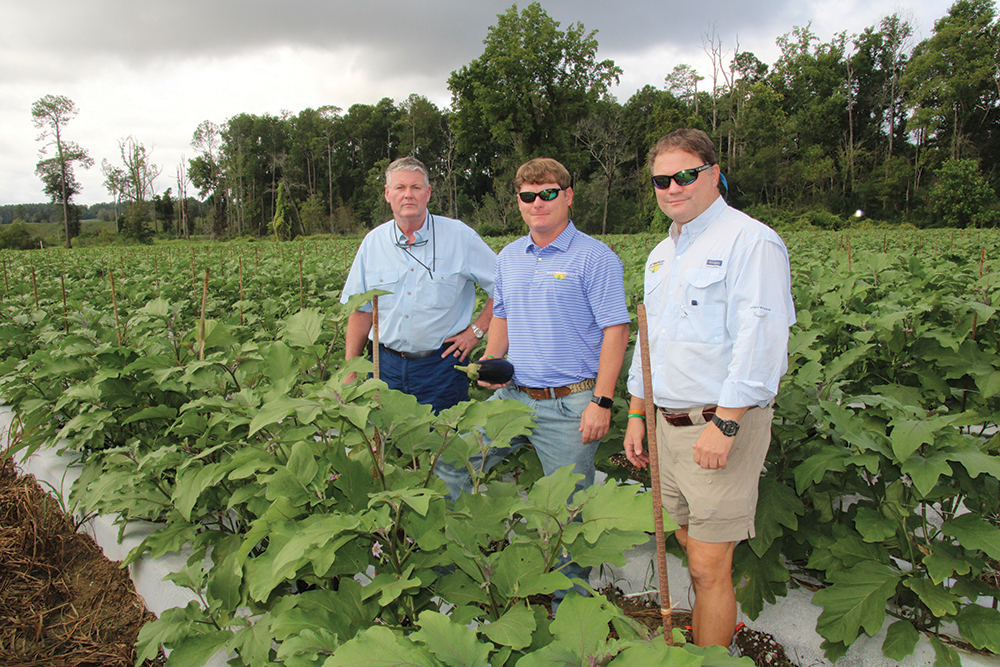

Oct 25, 2023Healthy soil, tech help Southern Valley survive tight times
Valuing soil health and containing costs, accompanied by hard work and family involvement help Southern Valley Fruit & Vegetable thrive.
Southern Valley, Norman Park, Georgia, grows and packs a variety of vegetables, including bell peppers, sweet corn and yellow and zucchini squash, its biggest items. The southern Georgia company’s operations west of Interstate 75 includes cabbage, cucumbers, eggplant and green beans, as well as acorn, butternut and spaghetti hard squash and hot peppers.
Through a partnership with Henderson Farms, Southern Valley grows vegetables in the heat of summer in eastern Tennessee and during the winter in Mexico’s Yucatan Peninsula.
Southern Valley grows on 5,000 acres. To counter rising costs and disappointing returns, it reduced acreage and is focusing on limiting waste to become more efficient. While inputs are three times more expensive than in the recent past, returns are similar to the late 1980s when the company began, said Austin Hamilton, director of agriculture.


“You just can’t risk that anymore,” Hamilton said. “We are cutting back on the things we were vulnerable on and are trying to get away from selling on the wholesale market.”
Labor, which constitutes 45% of Southern Valley’s total costs, increased 14% this year, which is on par for hikes in the cost of fertilizer, chemicals and seed.
Pest war
Major pests and diseases include phytophthora and pepper weevils on peppers and downy mildew, anthracnose and whiteflies on cucurbits. Despite a spray program and other preventive actions, Southern Valley in the fall of 2022 lost all its cucumbers to whiteflies.
“No matter how hard you try, sometimes you’re not just going to win,” Hamilton said. “It depends on the situation and is one of those things that we have to figure it out on our own, and a different or better way of doing it.”
Hamilton shared that the battle helped prepare for future infestations and employ different methods of insect control.
Maintaining healthy soils and conserving water and electricity are important components of Southern Valley’s operations. Plant nutrition is monitored via sap analysis. Biological soil testing, which started in 2021, provides a barometer of soil health. To boost plant productivity, the farm uses soil probiotics or customized soil amendments.
“You want your soil as healthy as it can possibly be,” Hamilton said. “Treat your soil as something that’s valuable, because it is one of the most valuable things that you can own or rent.”
Cover crops, mostly millet and oats but also radish and hemp, are employed as well as crop rotation. For thriving microbes, the farm always wants something growing on its land, whether a cover crop or a cash crop, Hamilton said.
Water is becoming a bigger issue for all American agriculture.
“As it could potentially turn into a scarce resource one day, it’s important we view water as a natural resource,” Hamilton said. “Any kind of practice that we can become more efficient with water, the better we will be.”
Tech limitations
Limited new technology is available for the types of farming conducted by many south Georgia produce growers, Hamilton said.
“There’s not a lot of tech in farming, really, for what we do,” Hamilton said. “A lot of it must be done by hand. We have as much technology as we can at this point and are still working on a lot of things.”
Since Hamilton joined Southern Valley in 2010, data integration, which creates planting and harvesting schedules that monitor inputs, spraying, harvesting and other practices, has become one of Southern Valley’s most important tools.
Because farming wasn’t as expensive as it is now, older generations of growers as late as the 1990s didn’t worry much about data. Growers could take risks and grow crops much easier than now, Austin said.
“I can read and do all this research on the internet and listen to universities and this and that, but if I am able to do my own data on my own farm, it helps me make decisions based on what something costs me, what it yields me,” Hamilton said. “This data helps me make more money.”
Data and soil testing help Southern Valley make better decisions for coming seasons.
“We have done a lot of things through biology, cover crops and just going back to soil health, which helps reduce the number of times you have to spray something,” Hamilton said. “You want that plant healthy. As long as the plant is healthy, it will take care of itself a lot of the time.”
Sustainability remains a key farming component at the company.
“We have to be sustainable on all fronts, from the farming side to the packaging and sales,” Hamilton said. “If we’re not sustainable, we won’t be here for very long.”
Hamilton advises new or established growers to study data.
“Look at the data side of the farm, taking as much data as you possibly can and make decisions based on data,” he said.
In 1987, Kent Hamilton, Austin’s father and Southern Valley president and CEO, joined his brother Kirk, his father Benny and friend David Rogers in creating Southern Valley. The founding Hamiltons represent six generations of farmers who grew cotton and peanuts. Southern Valley first grew cabbage and zucchini squash and later added peppers and other vegetables.
Shortly after the company’s start, Kirk Hamilton was electrocuted by a pivot irrigation system. Then, in 1991, Kent’s father died. Rogers left the company for the ministry, leaving Kent and his mother, Wanda, as company owners. At 80, Wanda is now retired but remains active, talking daily with her offspring who run the company.
In addition to Austin, other members of the company’s seventh generation are involved, including Austin’s sister Courtney Griffin, director of operational support, and brother Presley Hamilton, who manages equipment, maintenance and purchasing.
A motto at Southern Valley is “Family owned, family grown.”
“Family involvement is very important,” Austin said. “Our family is what holds us all together and keeps us pushing and driving forward.”
— Doug Ohlemeier, assistant editor
Top photo: Southern Valley, Norman Park, Georgia, grows and packs a variety of vegetables, including bell peppers, sweet corn and yellow and zucchini squash, its biggest items. Photos by Doug Ohlemeier.














